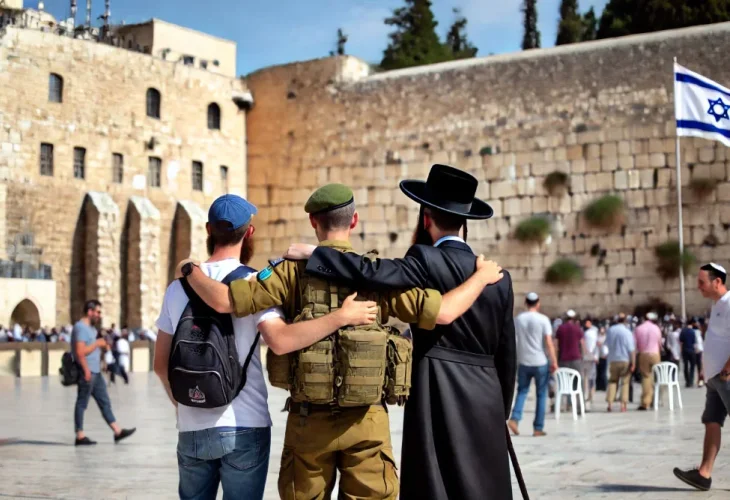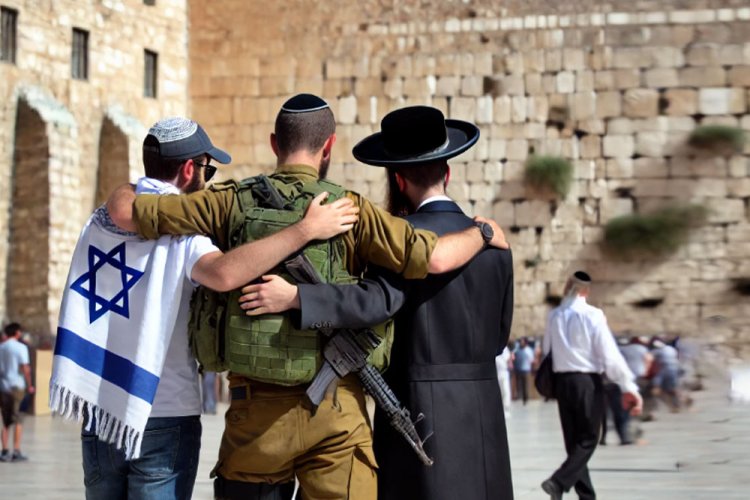The Shared Fate: How Unity Defines Jewish Destiny
Why does Moses repeat these curses? Wasn't it enough to mention them previously? How does this connect to the opening, "You are standing today," and to those who say, "Peace will be mine even as I follow my own path"?

In the portion of Ki Tavo, the covenant that Hashem establishes with the Jewish people is described. Upon entering the land, Hashem sets before them blessings and curses, urging them to choose the blessing. The portion also warns of consequences if they choose poorly, introducing the section of curses.
Now, in the portion Nitzavim, Moses reiterates various calamities already mentioned in Ki Tavo: anyone who turns to foreign gods, "Hashem will not spare him, for then Hashem's anger and jealousy will burn against that man, and all the curses written in this book will descend on him, and Hashem will blot out his name from under heaven."
And this is not just personal: "And foreigners will see the plagues of that land and the diseases that Hashem has brought upon it..." These are the same plagues and illnesses previously mentioned.
Why does Moses remind us of these curses? Wasn't mentioning them in Ki Tavo enough? How does this connect to the opening, "You are standing today, all of you," and what about the one who declares, "Peace will be with me because I will follow my own stubborn heart"?
Indeed, it would seem more appropriate to say, "Peace will be with me, even if I follow my own stubborn heart." Does such a person believe they'll find peace because of idolatry or despite it?
The opening verses of the portion, "You are standing today, all of you, before Hashem your God: the leaders of your tribes, your elders, and your officers, all the men of Israel, your children, your wives, and the stranger in your camp," list seven segments, symbolizing completeness.
Essentially, the curses of Ki Tavo serve as a warning to the entire nation, while Nitzavim warns of the importance of unity among its segments. Precisely because of these narratives and the unique historical path of the Jewish people—starting with the exile to Egypt and including every trial along the way—a person might feel detached from this destiny. "Whatever happens, happens," they might think. "I can separate myself."
The Torah addresses those who think, "Perhaps there is among you a man or woman, family or tribe...and someone hears the words of these curses and blesses themselves, thinking 'Peace will be with me, as I follow my desires.'"
For them, the Torah says: Hashem will separate him for harm from all the tribes of Israel. In truth, they won't become less Jewish; they'll become more vulnerable. If the Jewish people sin and are punished, they will be punished more harshly, highlighting their connection to Israel from which they cannot escape.

This is also why six tribes stand on one side for blessings and six for curses: Israel is collectively responsible. If a tribe errs, the others recite the curses. Conversely, if one tribe fulfills Hashem's will, they share its blessings.
Any mistake indicating that the fate of sin is Hashem's rejection is false. Despite harsh curses, Israel remains Hashem's children, proving the deep bond in the covenant. Thus, the nations witnessing, "Why has Hashem done this to the land?" will understand it's a part of a process with a destined change: "And all nations will say, 'Why did Hashem do thus to this land? What caused this great outburst of anger?' They will answer, 'Because they abandoned Hashem's covenant...'."
Everything is predetermined in the covenant; the fate of the Jewish people is at its core. The curses corroborate this bond, and through return, they will rectify them: "And when all these things come upon you, the blessing and the curse, which I have set before you, you shall reflect in your heart and return to Hashem your God..."
For the one distant "at the end of the heavens," who thought peace was apart from Israel, reality will prove their roots. They may be disciplined, but will also be welcomed back to Israel's embrace.
As for the curses? They've been reassigned: "Hashem your God will place all these curses upon your enemies who hate and persecute you."
When enemies collapse, we recognize these curses found new targets...
This all stems from the unity of Israel, reminding us that no single part—elders, judges, tribes, women, children, or converts—can resign. Together, we compose the whole of Israel, holding Hashem's covenant that prevents separation. "None shall be banished." And should anyone estrange themselves, reality calls them back, leading to repentance, return to the land, and blessings for all of us "standing" in a grand and enduring plan.

